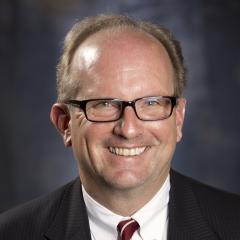Proposed legislation that proponents say would increase voter participation and transparency in America’s political process would actually restrict access for many, particularly businesses and associations, according to CEOs, pro-business groups and others who want Congress to reject the highly partisan measure.
The bill, HR.1, is a massive 800-page bill that calls for sweeping changes to election laws and voters’ rights regulations. Called “For the People Act,” it passed in the U.S. House with 220 votes in favor — all from Democrats.
A companion bill, S.1, awaits action in the Senate.
The voluminous document contains worthy measures to increase voter participation, but other provisions within it threaten industry’s right to have a voice in Washington, D.C., said Jack Howard, senior vice president for government affairs at the U.S. Chamber of Commerce, the world’s largest business federation representing the interests of more than 3 million businesses.

“The Chamber believes it is crucial to democracy to bring more people into the political process. Significant portions of S.1 are clearly intended to have precisely the opposite effect – pushing certain voices, representing large segments of the electorate and U.S. economy, out of the political process altogether,” Howard said in a letter to the Senate last month.
Reasons why hundreds of organizations asking Senate to reject bill
The Chamber has sent out “key vote alerts” to senators explaining why this is the wrong approach. For one, the bill lacks any semblance of bipartisanship, he said.
The bill takes on a number of hot button political issues: voting rights, campaign finance, political advertising, gerrymandering, and government corruption in all three branches of government.
When the House passed the bill March 8, it stated that its purpose is to “expand Americans’ access to the ballot box, reduce the influence of big money in politics, and strengthen ethics rules for public servants and for other purposes.”
Among the proposals in the bill to increase voter turnout through measures like expanded early voting and automatic registration.
But opponents argue the broad legislation also contains provisions that would erode the ability of industry and organizations to advocate on their own behalf.
For example, S.1 would regulate a vague, brand-new category of communications — communications that “promote,” “attack,” “support,” or “oppose” a candidate or elected official (PASO communications).
Existing campaign finance law regulates speech that either expressly advocates a candidate’s election or defeat or that mentions a candidate in relatively close temporal proximity to an election. Under the proposed legislation, the definition of PASO communications applies year-round and threatens to consume any legislative advocacy that even mentions an elected official, experts say.
‘Extremely problematic’ provisions
In the letter to the Senate, the U.S. Chamber cited some provisions that are “extremely problematic,” stating that they would:
–Transform the Federal Election Commission (FEC) from a non-partisan agency comprised of three commissioners from each party into an overtly partisan enforcement tool controlled by a majority of commissioners from whatever political party is in power.
-Deem communication by corporations, including associations, to be “coordinated” and thereby prohibited if the organization has even the most innocuous and tenuous of connections with a candidate. Meeting with an elected official to discuss a policy issue, an organizational employee who was previously employed by the elected official or candidate in any capacity, or a common vendor with a candidate, would all have the practical effect of prohibiting corporations, including associations, from engaging in the political process.
-Usher in a host of burdensome disclaimer requirements for businesses that engage in communications that mention a candidate or elected official, even if those communications are related to legislative issues.
For example, a group that spends more than an aggregate of $10,000 on such communications over a two-year election cycle must, among other things, file reports publicly disclosing all of its donors who have given more than $10,000 during the election cycle. The $10,000 donor threshold appears designed to target business organizations, while largely sparing labor organizations from disclosure of their funding sources, which are typically union dues far less than $10,000.
-Allowing Americans to opt-into having their political donations matched by the federal government. This would siphon tax dollars that should be used to support projects like infrastructure initiatives and education programs – not political campaigns.
-Regulate and ultimately silence Americans who choose to petition their government or participate in the political process through the collective action of an association or corporation.
“Just as using the power of government to silence the press is antithetical to the Constitution and fundamental rights, so are the restrictions proposed in S. 1,” Howard stated in the letter.
Political speech is a right for corporations and associations, too
Hundreds of CEOs, trade organizations and chambers of commerce are calling on the Senate to reject the bill, including the Arizona Chamber and at least 19 chambers statewide.
The American Civil Liberties Union (ACLU) also has voiced concerns about “overly broad and vague” wording in the bill that could harm the constitutional right of public interest organizations like Planned Parenthood and the National Rifle Association to engage in the political process.
Better solution: a bipartisan election reform commission
The U.S. Chamber and others are asking President Biden and leaders from both parties to opt for a different solution. They are recommending the creation of a bipartisan national commission with equal representation composed of former elected officials and leading citizens to examine the facts and make recommendations for improving the election system similar to the 2004 Carter-Baker Commission on Federal Election Reform.
“Such efforts have worked in the past. We are confident they could – and will – work again,” Howard said.















Add comment